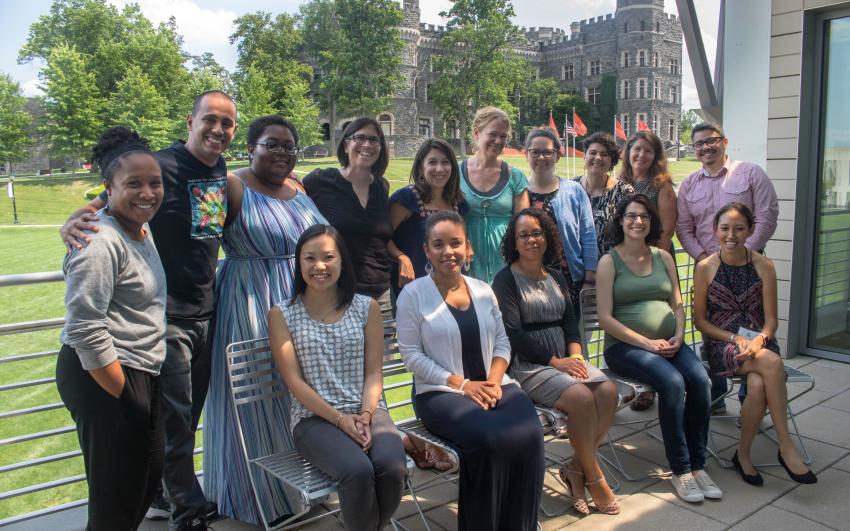Arcadia Hosts Fellows from Around the World for Transformative Teacher-Educator Summer Institute

Fourteen education scholars from around the world visited Arcadia University for the first Transformative Teacher-Educator Fellowship (TTEF) Summer Institute from July 7 to 14, where they learned about and designed cutting-edge instructional practices to incorporated into their own teacher inquiry projects.
Scholars attended from as far as Monash University in Melbourne, Australia to discuss topics that enable networking through technology while creating a more equitable student experience, the topic of a keynote address by Dr. Katherine Schultz, dean of the University of Colorado-Boulder’s School of Education on July 7.
During the Institute’s initial four days, fellows participated in 15 workshops, which included topics such as “hacking” educational frameworks to create new opportunities, using online games as a tool to teach digital natives, and opening up barriers for preservice teachers of color. The rest of the week, fellows will use the time to create or redesign a syllabus or class for at their home school.
“It’s not often that teacher-educators have the opportunity to develop their own practice,” said Dr. Kira Baker-Doyle, associate professor of Education at Arcadia and organizer of TTEF. “We want to empower the next generation of teachers to be agents of change and to connect with their communities.”
Once the Summer Institute is complete, fellows will return to their home institutes to put their projects into practice, where they will record data to provide updates to TTEF. Those findings will then be collected into a book, which Dr. Baker-Doyle plans to publish.
“It’s really wonderful to be working with people who are teacher-educators, and developing how to make teacher education more meaningful,” said fellow Christian Bracho, assistant professor of Education at the University of La Verne. He remarked that one thing he learned about was how Twitter could be incorporated into his classrooms, which has led to him creating his own account. “I’m seeing the potential value of these programs, and how it can provide networking for students using a technology facilitated connection.”
TTEF is funded by the Rosemary and Walter Blankley Endowed Chair in Education.

